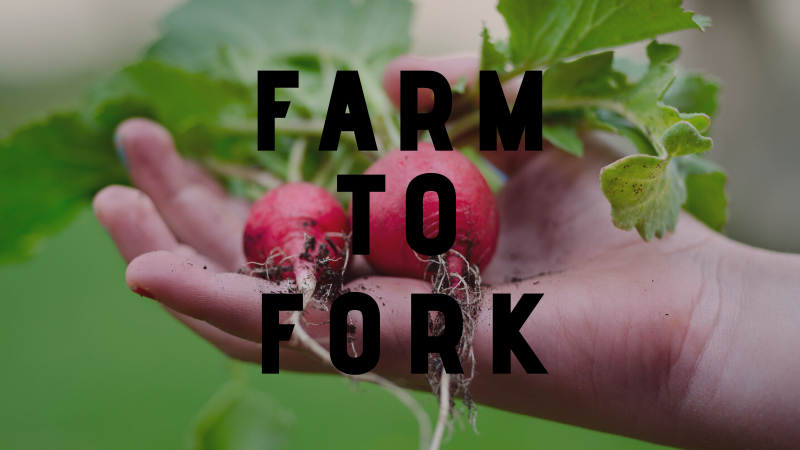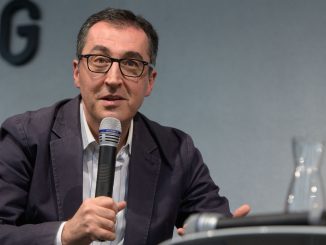40 civil society organisations, including ARC2020, have come together to demand that the EU’s Farm to Fork and Biodiversity strategies remain on schedule for April publication.
“There has never been a more pertinent moment for the Commission to show that it is actively steering the EU towards a greener future, of which sustainable and resilient food systems are an essential part” the letter opens.
It goes on to add: The simultaneous publication of the two strategies would articulate a strong, united and coherent environmental, climate, public health and social agenda, setting a clear vision for the Common Agricultural Policy and the food system.
“The Farm to Fork Strategy, biodiversity strategy and the long term vision for rural Europe belong together.” Hannes Lorenzen, ARC2020
A range of farming, food, environment and consumer organisations such as Agroecology Europe, Friends of the Earth Europe, Urgenci, WWF, Greenpeace, IFOAM EU, Seas at Risk, FairTrade Advocacy Office, Corporate Europe Observatory, Slow Food Europe, EEB, Eurocoop and Health Care without Harm have all put their names to the letter, addressed to Executive Vice-President Frans Timmermans and Commissioner’s Kyriakides, Wojciechowski and Sinkevičius.
Download the Letter in Full here
There has been significant pressure on the Farm to Fork process, part of the new commission’s flagship EU Green Deal initiative. Both the European People’s Party – the largest party in the European Parliament – and agri-lobby group COPA COGENA have been arguing for delays and abandonment respectively. Citing Covid19’s impact, COPA has asked for the roadmap to be abandoned, and to be replaced with a long assessment process instead, as ARC2020 revealed last week.
The Farm to Fork strategy represents a reorientation of some significance for EU agri-food policy, which would however take some years to bed in. It has already named organic farming as one of its five key objectives, along with biodiversity, environment, climate change, and ensuring Europeans can access affordable and sustainable food. As part of this, an as yet unspecified but still significant reduction in pesticides, fertilizers and antibiotics would occur. Over 600 submissions were made during the roadmap consultation process.
“The nearer the source, the stronger the relation between farmer and citizen, the more secure the food supply.” Bregje Hamelynck, CSA vegetable grower the Netherlands
Civil society organisations have however pointed out in this letter that “Covid-19 has strikingly brought to light some of the dysfunctions of our current globalised and unsustainable food systems, based on long and specialised chains, with a strong dependency on foreign and migrant workers in poor working conditions, while local producers face difficulties in accessing local markets…the Covid-19 crisis significantly highlights the urgent need for a Common Food Policy that is forward-looking, precautionary, resilient and health orientated, with an ambitious Farm to Fork strategy.”
“The Farm to Fork strategy is more important than ever: the current crisis has laid bare the vulnerabilities of the industrial food system while countless initiatives are showing the resilience of local food systems, of local communities of producers and consumers working together in solidarity. If it is not now the time to act, then when?” Marta Messa Slow Food Europe
Reference is made to the Science Advice for Policy by European Academies (SAEPA) report 2020 – a sustainable food system for the European Union.
SAEPA states that “Food systems have complex social, economic and ecological components, and radical transformation is needed to make them sustainable…reform of European agriculture and fisheries policies offer great opportunities to develop resilience and sustainability…but there is not yet enough evidence to know for sure exactly what works in practice, so the steps we take should be carefully evaluated, and trade-offs anticipated.”
“Diverse, organic and locally adapted seeds and plant propagating material have the potential to contribute significantly to halting the dramatic biodiversity loss which threatens food systems by providing habitats for many species.” Bernd Kajtna Arche Noah.
The letter concludes:
“As society emerges from this pandemic, the climate, social, human health, animal welfare, and biodiversity loss crises will still be here, posing major collective challenges, alongside a new and deep economic crisis. Farmers, consumers and civil society are anxious about the many uncertainties that lie ahead. While emergency measures may be required today, these do not diminish, but rather support the need for a clear vision for the future of food and farming.
We look to the European Commission to provide guidance and a clear perspective of the road forward, meeting citizens’ expectations across Europe, by publishing the Farm to Fork strategy by end of April 2020. ”
“Decentralised, territorial based agriculture can increase resilience and strengthen the capacity of small-scale food producers. This clearly implies a strengthened local and territorial approach to direct sales (ie Farm to Fork), from Community Supported Agriculture to local farmers’ markets and cooperative farmers’ shops.” Urgenci
More statements from letter signatories:
“Speeding up the transition towards ecological farming is not an option, but a necessity. Benefits range from reducing the likelihood of future epidemics to strengthening our resilience to shocks, rebuilding prosperous rural economies and limiting climate change”. Isabelle Brachet, Action Aid.
“Intensive agriculture is the single largest driver of biodiversity loss, and not one, but two recent reports on sustainable food by the EU’s top scientific advisors called for urgent and far-reaching change in EU food policy, so it is crucial that the Biodiversity and the Farm to Fork Strategies are published together this month, as announced.” Celia Nyssens, Policy Officer for Agriculture at the EEB






2 Trackbacks / Pingbacks
Comments are closed.